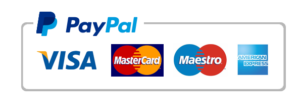BTEC Higher Nationals are Pearson qualifications that are acknowledged by higher education authorities, industry, and sectors across the world as the primary technical professional qualification at Levels 4 and 5. The qualifications are designed in conjunction with students, employers, and professional bodies to offer learners experience, opportunities, and comprehensive qualifications that benefit them in their selected vocation.
The BTEC Higher Nationals are aimed to equip learners with academic and practical skills that ensure they have the required experience needed by businesses and industries. Moreover, it offers learners the flexibility to directly join employment or advance their studies.
Benefits of BTEC National Qualifications
The BTEC National qualification has a wide range of benefits that include;
- Allow continuity for Level 3 learners by providing a clear advancement route to Level 4 and 5, while meeting the needs of local employers.
- Diversifying learners’ HE by offering a choice of over 40 subjects
- Offering learners with the opportunity to top up a university degree
- Build relationships with the local employers by reacting to the needs of the new Apprenticeship levy
- Work with Pearson to develop and validate your qualifications that address skills gaps within specific sectors
- Participate in periodic reviews of the qualifications while working alongside Pearson, employers, HE providers, and learners to shape their future.
- Benefit from free teaching and learning resources that support the learners’ area of specialization while helping with planning and delivery of the qualifications.
Building Blocks of the BTEC Higher National
The BTEC Higher National qualifications offer learners a flexible and unique programme of study that suits their needs. This is because they are designed in collaboration with professional bodies, centers, employers, universities, and students. Therefore, the content of each qualification develops knowledge, skills, and behaviors needed by learners to progress to the industry or further studies.
· Core Units (Compulsory)
Core units are designed to provide essential foundation knowledge and skills related to the subject for this level. The core units are compulsory hence required for all learners pursuing the qualification, irrespective of their specialization or pathway.
· Specialist Units (Compulsory)
Specialist units are designed to provide subject-specific key knowledge and skills related to the subject area. Like the core units, specialist units are equally mandatory within a given pathway or specialism.
· Optional Units
The BTEC Higher National qualifications are a highly specialized programme of study. It allows learners to broaden the scope of the studies to include other subjects through the inclusion of Optional Units.
Combining Core, Specialist, and Optional Units
To attain a full qualification at every level, learners must achieve the required number of credits specified in the qualification. For instance:
- Higher Nationals Certificates – 120 credits at Level 4
- Higher National Diplomas – 120 credits at Level 4 and 120 credits at Level 5
Usually, learners will complete 120 credits at Level4 before starting Level 5. Therefore, centers may offer Level 5 units after a student has attained a minimum of 90 credits. Nonetheless, centers must ensure learners understand that they will not have attained the Higher National Certificate unless they complete the 120 credits at Level 4.
Having identified the specialism or pathway, reviewed the Core, and Specialist units required, let’s look at the three ways, in which a learner can finalize the BTEC Higher National.
Optional Units
At every level of qualification, there is a wide range of Optional Units available and all are included within the programme specification. Some of the Optional Units that can be selected for the qualification will be dependent on the specific qualification and pathway. The choice of Optional Units for the qualification will be dependent upon the learners’ focused specialist experience.
Meeting Local Needs (MLN)
Meeting Local Needs offers the learner the ability to import units from different Pearson regulated Higher National qualifications. Centers are free to use MLN units to tailor the qualifications to the specific need of local learners or employers. This way, they make sure that the curriculum remains coherent and reflects the standard and rationale defined for the qualification.
Units to be imported should be at the same level as the qualification being offered and should not exceed the maximum credit value for imported units. Nonetheless, the maximum credits for importation are dependent on the specific qualification.
Locally Devised Units
Centers may identify a specific local need that is not met by the existing range of Higher National units within our qualifications. Under these circumstances, the center may contact the Higher National Teams to discuss the possibility of developing a new unit.
Where a clear demonstration of need Pearson in conjunction with centers is will develop modified units and assign a credit value. Delivery of modified units can only begin once the units have been entirely validated and added to the qualification.
The period between submission and validation of a tailored unit is not fixed. However, this depends on the subject and the density of the unit and development requirements.
Assessment
The BTEC Higher National units are internally assessed by the center assessors. As such, Pearson does not require specific forms of assessment for units in the qualification. This ensures that the assessment of the qualification suits the learners and the local needs.
Every Higher National qualification comprises a wide range of resources to assist centers in developing and delivering the qualification. These resources may include:
- Assessment Briefs that guide the range of different ways to develop suitable assessment instruments
- Schemes of Work provide a model of how the curriculum is delivered using a range of classroom, studio, and external activities.
- Core Textbooks that offer students information about the content for the core units of a qualification.
Besides, Pearson provides a range of different training events – both face-to-face and online to support centers. Such training may include:
- Internal Verification and External Examination preparation, to ensure the quality of assignments and assessment results and reviews the process and practice of annual external examiner visits.
- Assignment Writing and Assessment sessions explore, in detail, developing assignments, the holistic approach to assessment, assessment process, student feedback, and internal verification.
- Quality Assurance Training sessions cover the key elements and requirements of the quality assurance process for Higher Nationals.






Leave a Reply
You must be logged in to post a comment.